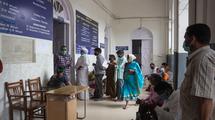Moving forward with a newer concept of Universal Health Care
It must encompass primary, secondary and tertiary care for all who need it, and at affordable cost without discrimination
Do we believe in health as a basic human right, which India’s Constitution guarantees under right to life? In contrast, we believe in the World Health Organization (WHO) definition of health: a certain totality of health to the realms of mental and social well-being and happiness beyond physical fitness, and an absence of disease and disability. This means that we cannot achieve health in its wider definition without addressing health determinants. This necessitates a need for an intersectoral convergence beyond medical and health departments such as women and child development, food and nutrition, agriculture and animal husbandry, civil supplies, rural water supply and sanitation, social welfare, tribal welfare, education, forestry.
We all subscribed to the slogan “Health for All by 2000” that was proposed by Halfdan Mahler and endorsed by the World Health Assembly in 1977. This slogan had an inherent implication, i.e., “for All”, which means universalisation. Thus, nobody is denied this and everybody is eligible without being discriminated against on the basis of financial status, gender, race, place of residence, affordability to pay or any other factors. Universal Health Care/coverage (UHC) was implied as early as 1977. India, through its National Health Policy 1983, committed itself to the ‘Health for All’ goal by 2000.
A focus on primary care
When and where then did partial coverage of the population and partial responsibility of the ruling government to pay for health care come in? The International Conference on Primary Health Care, at Alma Ata, 1978, listed eight components of minimum care for all citizens. It mandated all health promotion activities, and the prevention of diseases including vaccinations and treatment of minor illnesses and accidents to be free for all using government resources, especially for the poor. Any non-communicable disease, chronic disease including mental illnesses, and its investigations and treatment were almost excluded from primary health care. When it came to secondary and tertiary care, it was left to the individual to either seek it from a limited number of public hospitals or from the private sector by paying from their own pockets. There were not enough government-run institutions for the poor (who cannot afford exploitative and expensive private care). This abdication of responsibility, i.e., to provide secondary or tertiary care by the state, ensured the dominant, unregulated, profit-making private sector and also health insurance sector were kept happy and thriving. This created a dichotomy between peripheral primary and institutional-referred specialist care at the secondary and tertiary levels.
Looking ahead
Realising that even the poor do contract chronic illnesses and non-communicable diseases such as cardiac, neural, mental and metabolic disorders, and also require investigations and management at peripheral primary health institutions, a Primary Health Care (PHC) Version 2 or Comprehensive PHC was defined. A sensible move, it was operationalised through the National Rural Health Mission (NRHM) in India from 2013. The second half of the last decade saw the operationalisation of the Health and Wellness Centre as a model of implementation of Comprehensive Primary Health Care.
Every individual has a right to be healed and not have complications, disability and death. That right is guaranteed only by individualism in public health, the new global approach to UHC, where “nobody is left uncounted and uncared for”.
The Alma Ata declaration of primary health care can be left behind as a beautiful edifice of past concepts. Let us move forward with a newer concept of UHC which encompasses primary, secondary and tertiary care for all who need it at affordable cost without discrimination.
The Universal Health Coverage slogan must be avoided as it is deceptive. This is because it is neither universal in its implementation nor comprehensive in its coverage of services and never assures accessibility or affordability as its financing is conditional to insurance premiums paid either by the individual or state. WHO should not have yielded to the World Bank and the Rockefeller Foundation during the period of 2004-2010 towards pro-market driven reform guidelines such as reducing state regulation and selectivity of uneconomical service coverages. This backtrack from “Health For All” dilutes the UHC concept. However, the consolation is that the World Health Assembly resolution of 2011, urges countries for timely finance of the health sector to reduce out-of-pocket expenses and a catastrophic expenditure in health resulting in the impoverishment of families.
The Astana declaration of 2018 calls for “partnership” with the private sector, though alcohol, tobacco, ultra-processed foods, and industrial and automobile pollution contributed by the commercial private sector are well established. Also, poorer countries miserably fail or are unwilling for “private sector regulation”. It never addressed poverty, unemployment and poor livelihood, but eulogises quality PHC only as the cornerstone for Universal Health Coverage and ignores broader Universal Health Care.
A globally accepted health systems concept since the Beijing Health Systems Research Conference 2012 is that of a multi-nodal system of varied sectors, professional streams and specialities with a variety of staff to deliver Comprehensive Universal Health Care.
The National Health Mission with concurrent intersectoral thrusts on Poshan Abhiyan, National Food Security, the Mahatma Gandhi National Rural Employment Guarantee Act, water sanitation, Sarva Shiksha Abhiyan, etc. is a better model of fully tax-funded Universal Health Care, but the Ayushman Bharat Jan Arogya Bhima Yojana damages that approach.
Dr. K.R. Antony is Independent Monitor, National Health Mission, Government of India, a former Director, State Health Resource Centre, Chhattisgarh, and a former Health and Nutrition Specialist, UNICEF, India
(TH, 20.03.2023)


